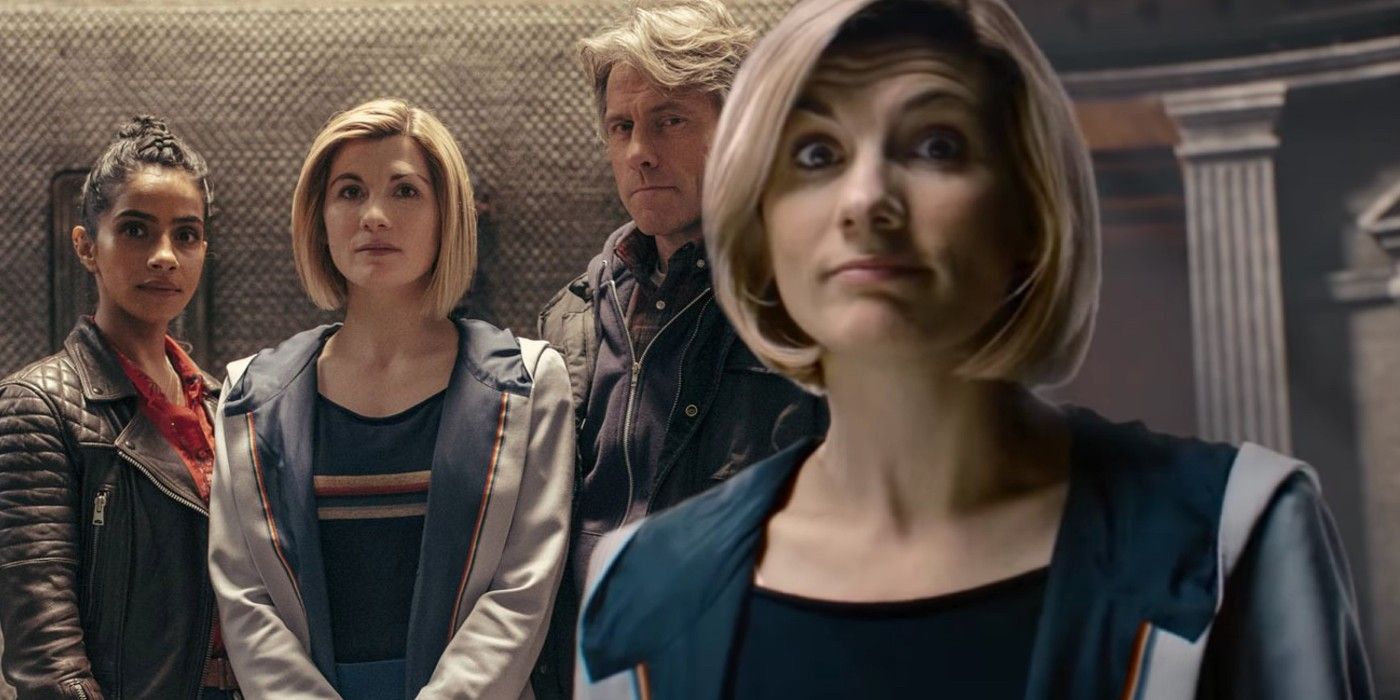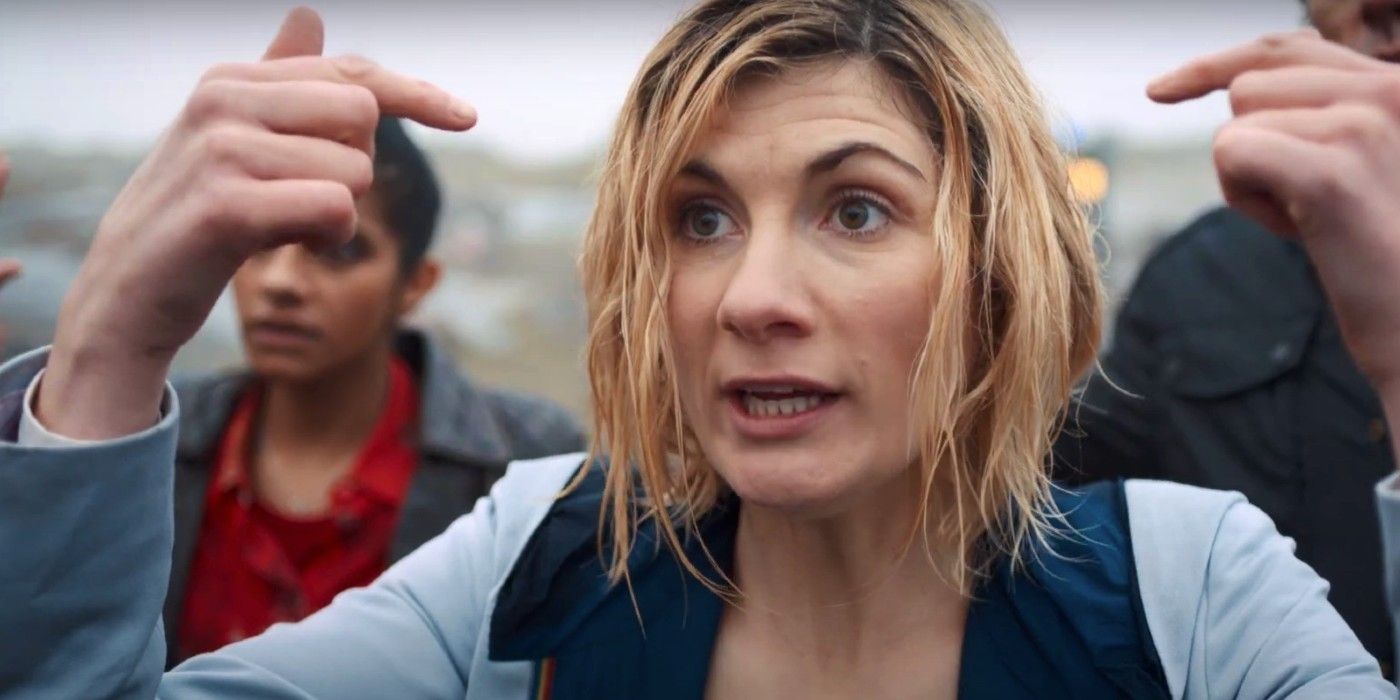Doctor Who is taking a bold and brave risk with season 13 - but did Chris Chibnall have any other choice? The last time fans saw Jodie Whittaker's Thirteenth Doctor in action, she was spending New Year's Day quashing the (latest) Dalek invasion of Earth, having recently escaped intergalactic Judoon jail. Post-Christmas fun was had by all, but Doctor Who was suspiciously quiet about the Timeless Child - the canon-breaking revelation that rounded out season 12 in early 2020. Whittaker's Doctor had just recently learned that her 13th incarnation was probably closer to her 113th and that Gallifrey wasn't her true home, but these major reveals (frustratingly) took a backseat on New Year's Day 2021.
Doctor Who season 13 is finally set to land in Fall, with newcomers John Bishop and Jacob Anderson joining as Dan and Vinder, respectively. Comic Con at Home took the opportunity to introduce these additions, but that wasn't the only major detail from the panel. Showrunner, Chris Chibnall, announced that Doctor Who season 13 would comprise one long story. From a certain point of view, this represents a return to Doctor Who's roots - before 2005, each adventure would be split into 4 (or more) installments. However, each season would include a number of these multi-part scripts, all completely standalone (even "Trial of a Time Lord" was only loosely connected), thus retaining some variety.
As such, Doctor Who season 13 represents a massive risk. Even in the classic era, no season was truly serialized in the way Whittaker's latest appears to be, and since 2005's reboot, Doctor Who has been almost entirely episodic. Sure, there are two-parters and overarching long-term plot threads, but the TARDIS generally lands itself in new trouble each week, and this is one of Doctor Who's greatest strengths. The format suits modern audiences and our short attention spans far better, and weak episodes last only a single week rather than 4. Tuning in each weekend to discover Doctor Who's next surprise has been key for the revived series' appeal, and season 13 focusing on one big narrative removes the fun, episodic quality many fans thrive on.
Having said all that, turning Doctor Who season 13 into a larger serialized story is the only logical move to properly deal with the Timeless Child. The New Year "Revolution of the Daleks" frustrated so many because it tried telling a standalone Dalek story amid a whirlwind of unanswered questions from season 12's massive cliffhanger. Doctor Who season 13 would be asking for trouble if it delivered 7 episodic, unconnected stories and saved all its Timeless Child answers for the finale. This is no regular Doctor Who mystery in the mold of Bad Wolf, Saxon or the Doctor's name - it's game-changing stuff that deserves 6 full episodes of exploration covering The Doctor's real origins and biology, and her reaction to discovering the truth. Once that's all out the way, normal episodic service can (and should) be resumed, but as the ghost of the Timeless Child still looms large over Doctor Who, there are simply more pressing matters to attend to than chasing a Pting.
On a more practical level, the ambitious "one big story" format adapts better to the shortened season length. Thanks to COVID-19, Doctor Who season 13 will run for a scant 6 episodes, which would go by very quickly indeed if each was a standalone story. With only 6 episodes to play with, why not go all-or-nothing for season 13? One could also suggest that fans are becoming increasingly receptive to serialized storytelling thanks to the continued rise of streaming. The MCU, for example, enjoyed huge success with Loki, which was essentially one big movie cut up into 6 chunks. As the original Time-Keeper, The Doctor should be able to do it better, right?


